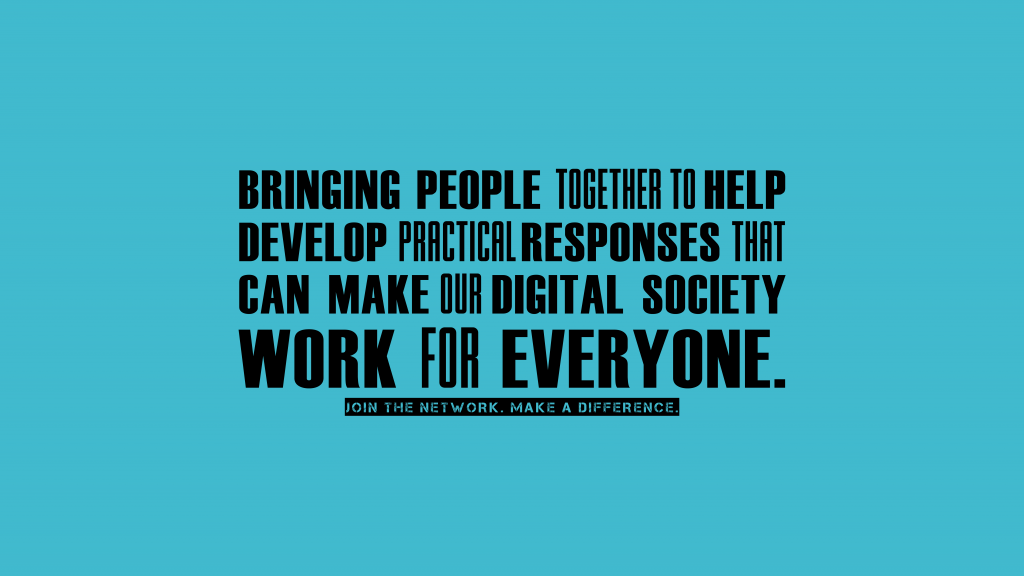21 PhD students and ECRs joined our second Not-Equal summer school, which took place in June 2021,.
This year summer schools’ online format enabled us to develop an exciting programme of invited speakers and workshop leaders from all over the world. From unpacking digital commons to exploring the body as a site to explore social (in)justice in the digital economy, we went on a week-long journey into the evolution of social (in)justice in the age of machine learning and digital networks.
Alongside the daily sessions, our evening webinars were open to the public. These sessions ranged from a lively panel discussion on equitable digital economies to considering what the multifarious expressions of sheep (MEOS) can tell us about social justice.
We had over 500 people sign up to the webinars, which are available to watch back here.
The Not-Equal Summer School
Speakers from a broad range of disciplines – worked with the cohort to explore different tools they could use in their social justice endeavors.
Over a week-long journey into the world of social justice and the digital economy, the cohort created microfictions around bodily gestures, took part in a Live Action Role Play about inter-species politics, and scrutinized the power relations and structures in their workplaces and collaborative research projects at our Solidarity Clinic.
The Summer School foregrounded dialogical spaces where speakers, workshop leaders and attendees shared their expertise, interests and experiences of doing social justice work in the digital economy. This resulted in many different ideas and approaches discussed and developed in each workshop—from different responses and takes on SolarPunk in our Design Fiction session to exploring different ways to adapt strategies for building equity in collaborations according to domains and contexts.
It was amazing to see what attendees developed at each session —from redesigning an optimistic future using design fiction or exploring commoning as a way to consider alternative data economies.
The school was chaired by Clara Crivellaro, Newcastle University, and Ann Light, University of Sussex.
You can find the full workshop and webinar schedule here.
Summer Webinar Series
The webinars were open to the public, and included talks exploring Machine Learning data pipeline, the seven principles of data feminism and eliciting alternative economies using speculative co-design.
All the webinar series is available online to re-watch and there are more details about each of the sessions on the page.
The week in brief
The summer school kicked off with our first webinar on The Evolution of Social Justice in the Age of Digital Networks and Machine Learning. We invited guest speakers Irina Shklovski, University of Copenhagen, Michael Muller, IBM and Prof Lorna McGregor, Human Rights Centre, Essex University to help us explore AI as relational infrastructure, the ‘life’ of data and human right implications of digital transformations.
On Tuesday we had our first workshop with the Summer School Cohort, where we explored the body as a site of social (in)justice with Cally Gatehouse, Northumbria University. The summer school attendees considered how digital technologies and economies shape bodies in ways that both reinforce and reconfigure inequalities.
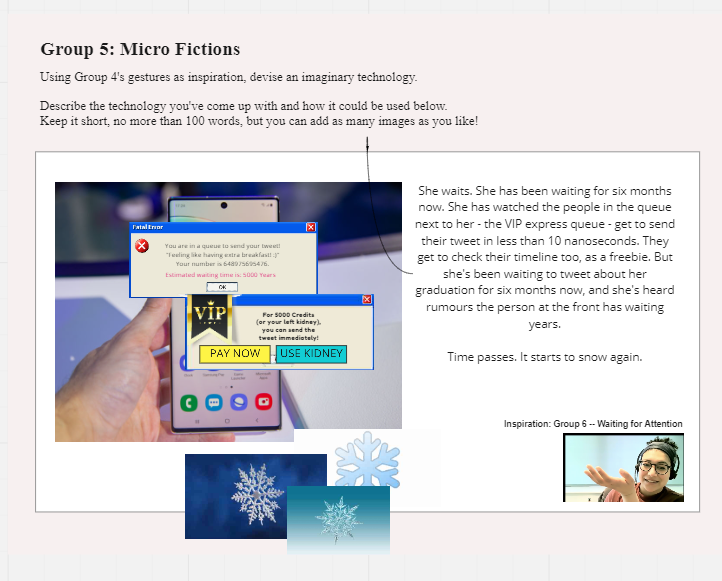
As part of the workshop, they took photos of gestures representing an experience they had at the intersection of digital technology and social justice, and then in groups they created microfictions about imaginary technologies in response to these gestures.
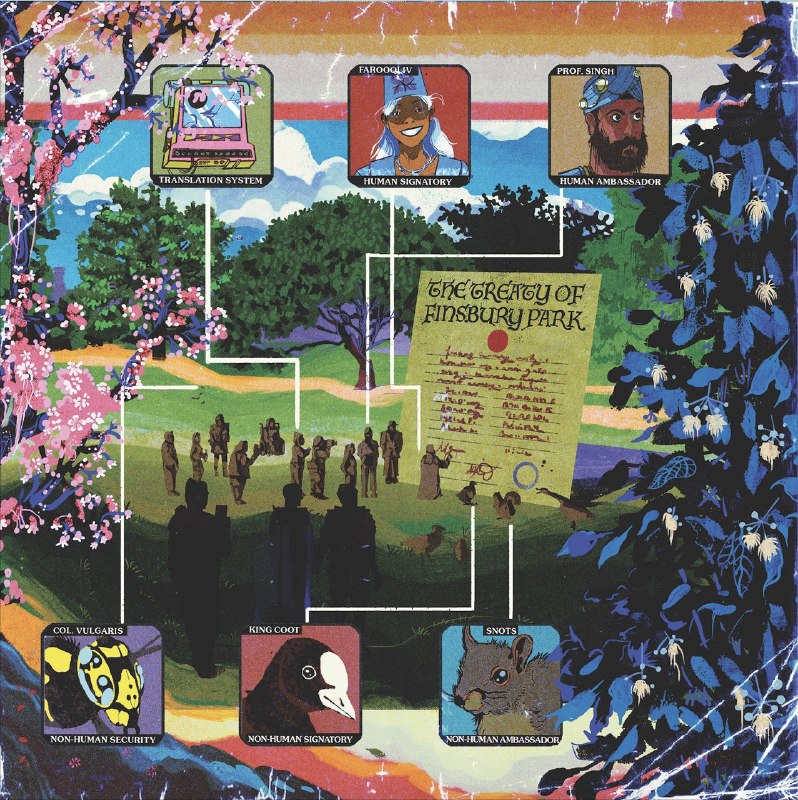
In the afternoon, attendees were joined by Ruth Catlow and Cade Diehm, Furtherfield who introduced the cohort to The Treaty of Finsbury Park 2025, a Live Action Role Play game facilitating inter-species politics. They were asked to choose their more-than-human mentor, don a digital mask and join the first multi-species people’s assembly.
The day concluded with our second evening webinar— a panel discussion on Equitable Digital Economies, with Tawanna Dillahunt, University of Michigan’s School of Information (UMSI), Pitso Tsibolane, University of Cape Town, Ann Light, University of Sussex, Maurizio Teli, Alborg University & Ruth Catlow, Furtherfield.
On Wednesday Maurizio Teli, Aalborg University and Andrea Botero, Aalto University started the day with a workshop on Creating and Sustaining Digital Commons. They used a pluriversal slide-deck created at the Participatory Design Conference 2020 to foster discussions on collaborative efforts involving people with different interests, skills, and backgrounds but united by a shared curiosity on commoning and design. The workshop explored the relevance of the commons for Participatory Design, and as a way of practicing being and making together.
In the afternoon, attendees considered Strategies for Building Equity in Collaborations, working in groups exploring how to collaborate across different sectors.
In the evening we were joined by Catherine D’Ignazio, MIT and Giselle Cory, DataKind who presented talk on data science for social justice. Catherine D’Ignazio discussed the seven principles of Data Feminism explaining how feminist thinking can be operationalized in order to imagine more ethical and equitable data practices. Giselle Cory talked about real-life case studies drawing from the work of DataKind supporting social change organisations use data science.
On Thursday, the cohort took part in the Solidarity Clinic with Angelika Strohmayer, Northumbria University, Vasilis Vlachokyriakos, Newcastle University, Ann Light, University of Sussex and Clara Crivellaro, Newcastle University.
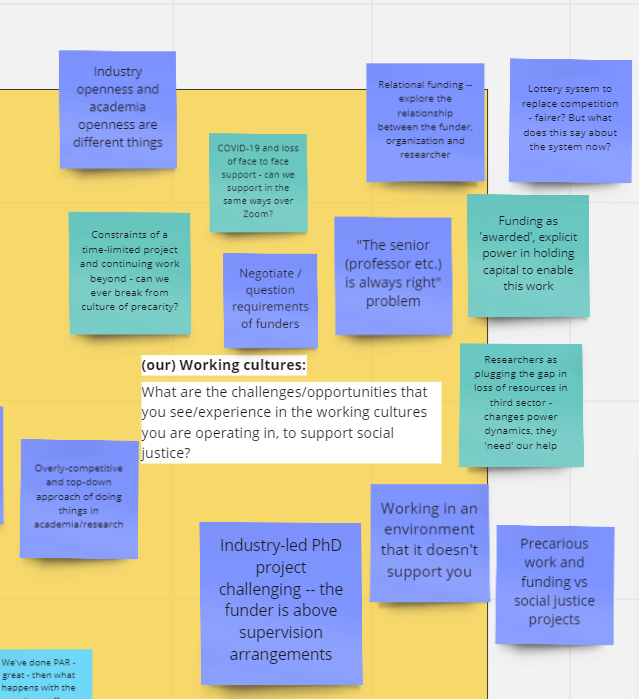
They discussed their experiences of navigating power dynamics, and looked at their own institutional working cultures. They broke into groups to reflect on different areas: negotiating positionality and reflexity, community activism, changing academia, and power dynamics in context.
In the afternoon, Yvonne Mc Dermott Rees, Hillary Rodham Clinton School of Law, Swansea University and Friedhelm Weinberg, HURIDOCS led a workshop on the benefits and challenges of collective intelligence for human rights.
In the evening, we held our last webinar in the series. Carl Di Salvo, Georgia Institute of Technology, Al Robertson, Fiction Writer and Sarah Naomi Lee, Plenty Productions, took us on a journey to explore creative responses to previous evenings webinars in the form of sheep facial expressions and sci-fi stories; and how experimentation can be used as a means of cultivating and sustaining imagination for social action and social change.
On Friday—our last day of the summer school, the cohort spend the day learning about design fictions with Joe Lindley, Lancaster University and Miriam Sturdee, Lancaster University. The groups created exhibitions for the museum of SolarPunk – an 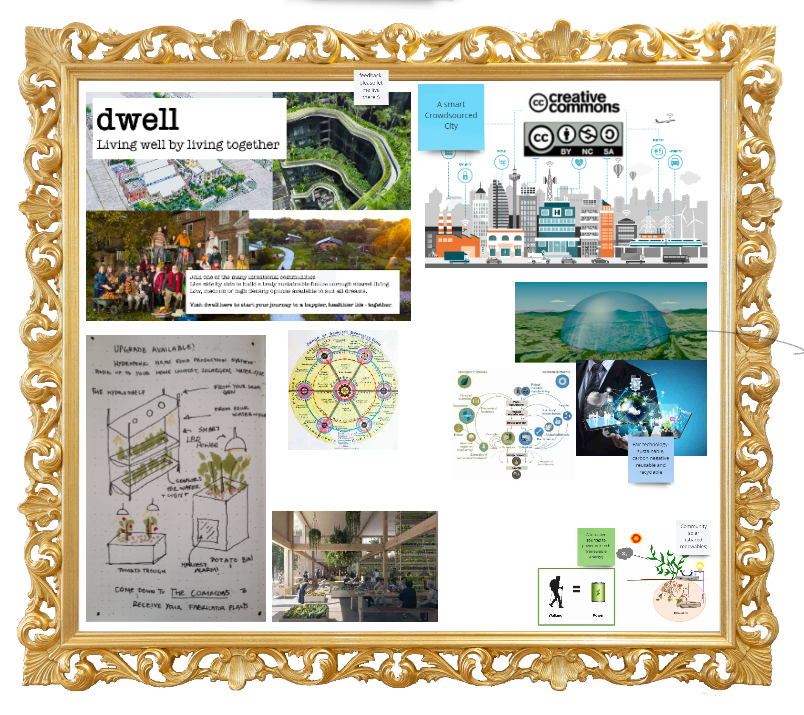
After a long week of thinking, discussing, creating and more – we said our goodbyes. We want to say a huge thank you to everyone who made this summer school such a wonderful event! Our speakers, workshop leaders, the team supporting it all behind the scenes, our Summer School delegates and those who attended our evenings webinars. Keep up the good work, everyone! 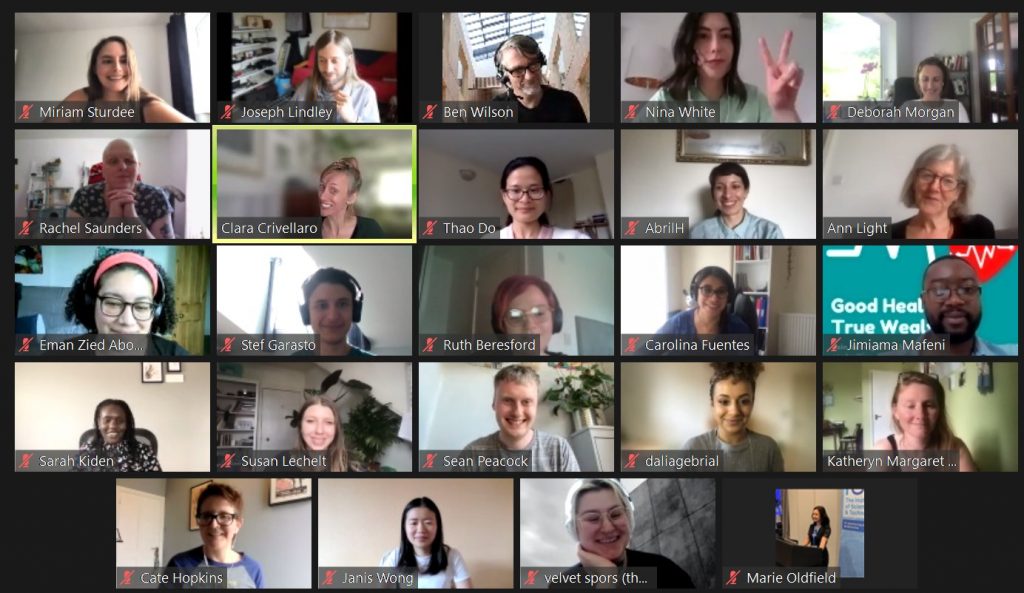
If you would like to keep in touch and find out about other Not-Equal events, you can join our mailing list here.

